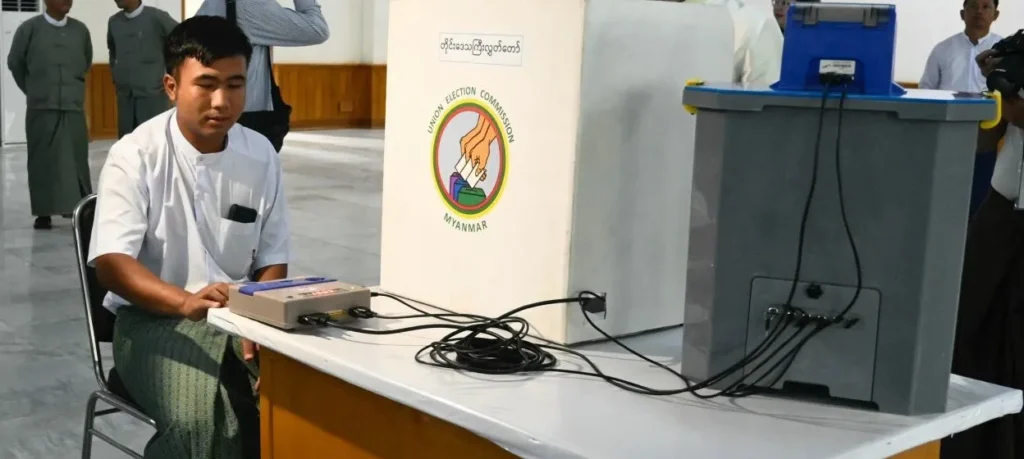
Myanmar’s December 2025 Elections: A Carefully Engineered Trap, Not a Genuine Political Transition
In a move widely anticipated yet deeply troubling, Myanmar’s military junta, now operating under the name State Security and Peace Commission (SSPC), announced elections scheduled to begin on 28 December 2025. On the surface, this announcement might seem like a step toward restoring civilian rule and political normalcy after years of turmoil. But the reality is far more sinister. Rather than signaling a true transition to democracy, these elections are part of a carefully calculated plan by the junta to consolidate its power, entrench repression, and legitimize its rule both domestically and internationally.
A False Facade of Political Transition
The SSPC formally ended the state of emergency on 31 July 2025, which many had hoped would mark the beginning of Myanmar’s return to political openness. However, this hope was quickly shattered. Almost immediately after lifting the state of emergency, the regime imposed martial law in 63 townships, primarily those known to be opposition strongholds. This move underscores the junta’s intent not to loosen its grip on power but to intensify control over dissenting regions.
This approach contrasts starkly with the military’s earlier political maneuvers, such as the 2010 general elections under the State Peace and Development Council, which, despite their flaws, maintained at least a semblance of political transition. Today, the SSPC has discarded such pretense entirely, openly relying on repressive legal frameworks and institutional manipulation to control the electoral process and suppress opposition.
Institutional Manipulation: The Puppet Union Election Commission
A key instrument in this strategy is the Union Election Commission (UEC), which remains a hollow shell of an institution designed to rubber-stamp the junta’s decisions. The UEC has never been genuinely independent. After the 2021 coup, the military reappointed all its members, effectively turning it into an extension of the regime. The UEC’s endorsement of unsubstantiated claims of electoral fraud in the 2020 elections illustrates its compromised position.
More concerning is the way the regime bypassed the UEC’s authority altogether during crucial legislative changes. Under Section 419 of the 2008 Constitution, the military government can legislate during a state of emergency but is still expected to involve relevant institutions in consultative processes, especially regarding elections. Instead, sweeping amendments were enacted, including the draconian “Law on the Protection of Multiparty Democratic General Elections from Obstruction, Disruption, and Destruction” (SAC Law No. 48/2025), which was passed in late July—before the UEC’s formal reconstitution in August. This law’s passage without UEC input highlights the commission’s powerless, purely symbolic role and underscores the junta’s deliberate sidelining of checks and balances.
Legal Repression: Criminalizing Dissent and Controlling Communication
The new election laws do more than just entrench military control over the electoral process; they actively criminalize opposition and dissent. SAC Law No. 48/2025, for instance, imposes harsh penalties on citizens for expressing views considered disruptive. Under Section 16, even peaceful campaigns encouraging citizens not to vote—whether online or offline—risk incarceration with minimum sentences of three years. The law’s vague language serves a chilling purpose: it coerces self-censorship among Myanmar’s population, preemptively stifling any form of dissent or resistance.
Additionally, the law institutionalizes pervasive surveillance mechanisms. It establishes special election security committees at central and regional levels, expanding surveillance beyond typical law enforcement to include the Ministry of Transport and Communications and Myanmar Post and Telecommunications. This effectively allows the SSPC direct control over monitoring and policing both physical and digital spaces, tightly controlling public discourse.
Compounding this repression is the recently enacted Cyber Security Law (SAC Law No. 1/2025), which came into force on 30 July 2025. This law is even more aggressive in targeting digital freedoms. It bans the use of virtual private networks (VPNs), which many use to bypass internet restrictions, and removes privacy protections, allowing the regime to monitor online activities with little oversight. Remarkably, the law claims jurisdiction over Burmese nationals abroad, extending the junta’s surveillance reach beyond its borders.
Together, these two laws form a “pincer movement” on Myanmar’s civic space. SAC Law No. 48/2025 targets the content of speech, while SAC Law No. 1/2025 controls the channels through which that speech is communicated. The combined effect is to suffocate opposition voices and erase the already narrow space for political activism or peaceful protest.
The Opposition’s Dilemma: Silence or Repression
The military’s tightening grip has left opposition groups, especially the National Unity Government (NUG), in a precarious position. In recent weeks, the NUG and other resistance entities have fallen largely silent, reflecting a grim recognition: overt opposition to the elections now risks providing the junta with the justification to arrest and imprison activists, effectively decimating their political base.
This silence, while painful, may be a calculated survival strategy. Engaging in visible protests or election boycotts could provoke harsh crackdowns, but remaining silent also risks ceding political ground to the regime. The junta aims to claim legitimacy through these staged elections, undermining the NUG’s authority, which rests on the 2020 election mandate that the military nullified. The NUG is caught in an existential bind — any response seems to either legitimize the junta’s charade or expose their supporters to danger.
The NUG’s Self-Inflicted Strategic Conundrum
Part of this bind stems from the NUG’s own political decisions. The Committee Representing Pyidaungsu Hluttaw (CRPH), which appointed the NUG and bases its legitimacy on the 2020 election results, rejected the 2008 military-drafted constitution outright. This rejection closed off avenues for organizing any parallel or symbolic elections before the CRPH’s mandate expires in late 2025.
While the NUG’s vision of an Alternative Federal Transitional Arrangement is ambitious and noble, progress toward this goal has been slow and fraught with internal challenges, including delays in the National Unity Consultative Council process and limited governance capacities amid ongoing conflict. As a result, the NUG finds itself politically stranded — caught between reliance on a mandate under a constitution it does not recognize, and a political framework it refuses to engage with.
Regional and International Implications
The upcoming elections also pose a critical test for regional and international actors. Countries like China and India have already voiced varying degrees of support or acceptance for the SSPC’s election timeline, providing the regime with diplomatic cover. ASEAN, in particular, faces a crucial moment. The regional bloc has long committed to people-centered approaches and democratic norms in its Charter and through its Five-Point Consensus (5PC) aimed at resolving Myanmar’s crisis.
Yet tacit recognition or endorsement of the junta’s sham elections would fatally undermine ASEAN’s credibility and contradict its stated principles. It risks making ASEAN complicit in legitimizing a government that is actively repressing its citizens and violating human rights. Nonetheless, ASEAN retains agency and can still resist this trap by delaying endorsement, demanding genuinely free and fair elections, and publicly affirming support for the democratic rights of the Myanmar people.
Conclusion: A Trap, Not a Transition
The December 2025 elections in Myanmar are not a pathway to democracy or political transition. They are a trap—carefully engineered by the SSPC to consolidate military rule, silence dissent, and legitimize authoritarian control. The junta’s use of repressive laws to criminalize peaceful opposition and its manipulation of electoral institutions reveal the sham nature of this electoral exercise.
For the NUG, resistance now means navigating a political minefield where open opposition risks severe repression, and silence risks irrelevance. For ASEAN and the international community, the moment demands principled, strategic responses to avoid being complicit in the junta’s attempts to cloak its dictatorship in electoral legitimacy.
Myanmar’s future hinges on whether its people and the world recognize this election for what it truly is—a political trap—and respond accordingly. The real transition will only come through genuine inclusion, respect for human rights, and a commitment to democratic principles, none of which are present in the SSPC’s December 2025 election plan.
Related posts:
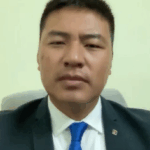 Dr. Sasa Resigns from NUG, Restructuring Expected Inside Shadow Government
Dr. Sasa Resigns from NUG, Restructuring Expected Inside Shadow Government
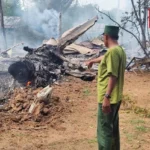 REBELS DOWN MYANMAR JF-17 FIGHTER JET IN ATTACK
REBELS DOWN MYANMAR JF-17 FIGHTER JET IN ATTACK
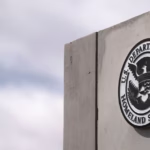 U.S. Ends Temporary Protected Status for Myanmar Nationals
U.S. Ends Temporary Protected Status for Myanmar Nationals
 Starlink Fuels Myanmar Scam Networks, U.S. Demands Geoblock
Starlink Fuels Myanmar Scam Networks, U.S. Demands Geoblock
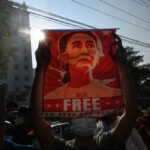 ASEAN Rejects Myanmar’s Military Elections, Illegitimate
ASEAN Rejects Myanmar’s Military Elections, Illegitimate
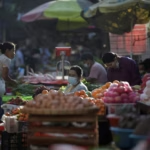 World Bank Sees Myanmar Economy Rebounding Despite Crisis
World Bank Sees Myanmar Economy Rebounding Despite Crisis
